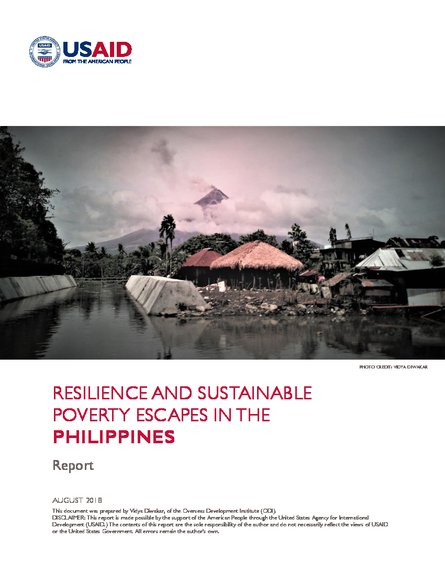
The objective of this report is to investigate the drivers of sustained and transitory escapes from poverty in the Philippines. It responds to the question:
- What are the factors associated with households escaping poverty and subsequently staying out of poverty?
- How does this compare with households who escape only to later fall back into poverty?
This case study finds that transitory poverty escapes and impoverishment are significant phenomenon in the Philippines. Findings from this report are based on analysis from three rounds of the panel component of the Family Income and Expenditure Survey over 2003-2009 in addition to qualitative research approaches, in particular, key informant interviews, life histories, and participatory wealth ranking in two regions (Bicol- Daraga and Albay; and SOCCSKSARGEN- General Santos and Sarangani).
The report investigates the resources (land, livestock, and assets), attributes (household composition and education level), and activities (including jobs and engagement in non-farm activities) of households that enable them to escape poverty sustainably and minimize the likelihood of returning to living in poverty again often in the face of shocks.